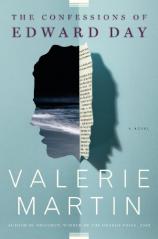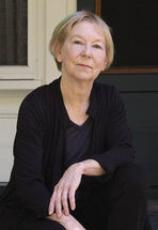Reading Group Guide
Discussion Questions
The Confessions of Edward Day

1. Part I concludes with Edward wishing he could avenge his mother's death by making Helen pay for what she had done. Is this a form of misplaced anger? How does the theme of retribution play out throughout the novel?
2. Edward describes his rescue from the ocean in almost supernatural terms, and his resemblance to Guy is eerie, too. Throughout the novel, the two men compete for the same things, and in the end, one is left with nothing while the winner takes all. In a literal sense, the two are adversaries. How might their relationship be interpreted in a more figurative way? Is it possible that they are two halves of the same person? What does the novel say about how well we know ourselves?
3. About his initial decision to study acting, Edward says, “Inside a character I knew exactly who I was, the environment was controlled, and no one was going to do anything unexpected. It seemed a way of playing it safe. Of course, real acting is the farthest thing from safe a person can get.” Discuss this dichotomy. Why would Edward crave certainty? What about acting makes it unsafe?
4. At Marlene's cottage, Edward remarks to the reader, “Actors are a superstitious tribe.” Why do you think this might be? Do you think that luck plays a role in the success of an actor more than it does for those in other professions? Or is talent all it takes? How might any actor's constant need for approval affect them psychologically?
5. It's Edward's understanding that if Guy had not jumped into the ocean to save him, he would have drowned, and for that, “I owed him my life and my obligation was a bond that must endure between us forever.” Do you think this is a normal response? Would you feel the same? Or do you think Edward is more prone to feeling indebted and, if so, why?
6. Guy is consistently presented as being cold and humorless, but these are only Edward's observations. Do you think Edward's perception is correct? How do the other characters see Guy? Is it possible that Edward is blinded by his own myopia? Why would he be?
7. Edward considers himself a Method actor who acts from the inside out-in other words, his internal emotions inform his voice and behavior on stage. Guy, on the other hand, acts from the outside in-letting his body invoke an emotional response. While Edward and Guy are similar in many respects, why do you think the author chose to endow them with these different techniques?
8. When Edward acts with Marlene, he feels emotion on stage for the first time. Do you consider his emotion authentic? How much of what we witness on stage or in film would you consider “real”? Or is all acting pretending? Has this book changed your opinion about truth in art?
9. Edward often recounts events from his life as if they were scenes, describing them in theatrical terms. What do you think this says about him?
10. How did you feel when Teddy spilled the news that Madeleine had married Guy? Were you surprised? Were you sympathetic to Edward? Did your attitude toward either character change at this point?
11. How is Teddy's revelation about his sexual orientation relevant to the themes of the novel?
12. Did Madeleine's proclamation about her sex life with Guy change your attitude toward him? Do you think she was telling the truth?
13. A few events at the end of the novel alter Edward's understanding of Guy and Madeleine's relationship, and he finds himself shocked by even the mundane-or perhaps obvious-fact that they had been “playing house” together. Why do you think this comes as a surprise to Edward? Should it?
14. Chekhov's gun is a literary technique whereby an element is introduced early in the story, but its significance does not become clear until later on. Chekhov himself explained, "One must not put a loaded rifle on the stage if no one is thinking of firing it.” What examples of this device can you find in The Confessions of Edward Day? How does the author create a sense of foreboding and tension?
15. Near the end of the novel, Edward considers the fact that Guy might have intended to take his place on stage in Uncle Vanya. Is this a plausible scenario? What do you make of Guy's motives throughout the novel? Why is he so unrelenting? How would the novel differ if it were written from his point of view? Why do you think the novel is limited to Edward's perspective?
The Confessions of Edward Day
- Publication Date: August 11, 2009
- Hardcover: 304 pages
- Publisher: Nan A. Talese
- ISBN-10: 0385525842
- ISBN-13: 9780385525848








